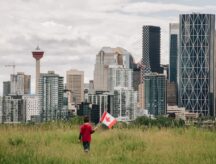Journalist, allegedly fleeing the Taliban, gets a second chance at a Canadian refugee claim
Ahmad Q. Barekzai is an Afghan national and a journalist. He came to Canada claiming persecution in his country of origin due to having written an article strongly critical of the Taliban.
Barekzai alleged he was the target of both violent threats and attempted kidnapping. The Immigration and Refugee Board (IRB) rejected this claim. He then appealed to the Federal Court of Canada.
His case has illustrated the pitfalls of the IRB putting itself in the mind of a ‘reasonable’ terrorist organization.
The Court affirmed that Barekzai bore the burden of showing that the IRB’s decision was unreasonable and that it lacked certain fundamental attributes such as transparency and intelligibility.
Learn about Canada’s immigration system
The IRB found that Barekzai was not a credible individual. An important aspect grounding this finding was Barekzai’s characterization of the alleged kidnapping attempt against him.
Barekzai had asserted that his kidnapping ultimately failed due to the presence of witnesses at the scene. The IRB had concluded it was implausible that unarmed observers would be sufficient to deter the Taliban forces from kidnapping someone.
Barekzai also challenged this finding, and the Court agreed with him. In its ruling, it provided several explanations why the IRB was unreasonable in the way it treated Barekzai’s claim and credibility.
One problematic aspect was that the IRB had, in assessing the plausibility of Barekzai’s account of the kidnapping, seemingly asked itself what a ‘reasonable Taliban’ would do in given circumstances.
The Court found that this process was a rather dubious undertaking given the radical nature of the organization and its members. Another concern arose from the National Documentation Package (a collection of country-specific information to guide the IRB) for Afghanistan.
The Court noted that nothing in this package described the nature of kidnappings in that country; there was no evidence to negate or support Barekzai’s claim that witnesses could deter would-be Taliban kidnappers.
Accordingly, the Court found that it could not sustain the IRB’s finding about Barezkai’s credibility. In the Court’s opinion, the IRB made conclusions that were not justified in either facts or law. The Court concluded the IRB’s decision was neither transparent nor intelligible.
The Court thus set aside the challenged decision of the IRB and remanded it to another decision-maker for redetermination.
This case shows that a reviewing court will not hesitate to set aside a decision that it finds unreasonable. Treating a violent, terrorist organization as a reasonable actor and trying to imagine its ‘mind’ — or arriving at conclusions not supported by the information before the Court — apparently fits this category. As former Supreme Court of Canada Justice Morris Fish has remarked: “Deference ends where unreasonableness begins.”
Learn about Canada’s immigration system
© CIC News All Rights Reserved. Visit CanadaVisa.com to discover your Canadian immigration options.
- Do you need Canadian immigration assistance? Contact the Contact Cohen Immigration Law firm by completing our form
- Send us your feedback or your non-legal assistance questions by emailing us at media@canadavisa.com






